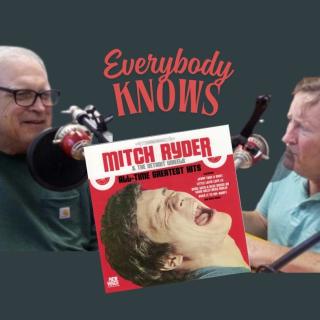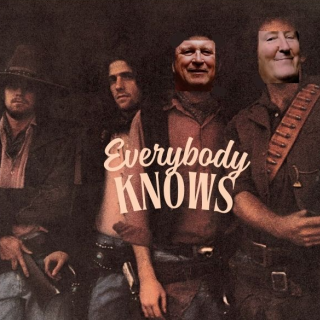Advertisement
In 1960, two Ohio State students would hang out on folk night at Larry’s Bar, just south of the corner of Woodruff and North High. The two formed the folk duo The Sundowners, and almost certainly played their first show either at Larry’s or down the street at the Sacred Mushroom, across from the student union. The first was named Jim Glover, who subsequently moved to Greenwich Village and had moderate success as part of the duo Jim and Jean. The other was Phil Ochs.
Ochs, who had lived intermittently in Columbus even before he attended OSU, would eventually follow Glover to New York in 1962 and began playing Village coffee shops and folk clubs. In early 1964, he released his first album for Elektra records, “All the News That’s Fit to Sing.” He became friends of a sort with Bob Dylan, who the following year went electric at the Newport Folk Festival and transcended into pop stardom with the release of “Like A Rolling Stone.”
Dylan went electric, and Ochs became a mythical character. He became the ill-starred last protest singer, the great political balladeer who remained true to his political principals when Dylan did not. When the revolution he sang for never came, Ochs descended into depression. Increasingly paranoid that the FBI and CIA were following him, Ochs took his own life in 1976 under mysterious circumstances.
The legend isn’t entirely accurate -- Ochs was actually supportive of Dylan’s new direction, and would himself go electric late in his career, albeit in a bizarre fashion. Ochs’ suicide was likely the result of years of untreated manic-depression and alcohol abuse (although it recently was revealed that the FBI had in fact compiled a 500 page dossier on Ochs). But there is a tremendous amount of truth in it too. There is a video out there somewhere of Ochs performing his greatest protest song, “I Ain’t Marching Anymore,” on the OSU Oval in the mid-sixties. Playing an acoustic guitar, wearing a jacket in the fall, playing for a peace rally crowd on black and white film -- if someone asked you to explain what protest music was, you could just show them the video.
A few weeks back I learned that local songwriter/activist Brian Clash was putting on a tribute show right before Christmas. I sent Brian a message asking if there was still space, and then dug out some CD’s and spent a few hours going through his back recordings to find some songs I wanted to do. It made me remember the strangest thing about Ochs; when you hear his recordings you can sense and see an audience of ghosts listening and reacting to them. It could be 60’s college students protesting the draft, over-smart beatniks giggling over declaring the war is over, or towards the end heckling jackals salivating over the end of a career.
Ghosts are never easy. There is almost something illicit about Ochs’ recordings; you might get slipped a copy by a parent, or hear a snippet when you arrive early at a friend’s house. You don’t introduce just anyone to Phil Ochs -- you judge their personality and politics first, maybe over the course of several years. You for some reason don’t want to put it in front of someone who won’t appreciate it the way you do.
Some of the protest songs seems dated, but (sadly) a lot of them don’t. Ochs was a strong writer, and had a range far greater than just topical music. He could be viciously hilarious (“Outside of a Small Circle of Friends”) or just plain vicious (“Here’s to the State of Mississippi”). He did rock (“Tape from California”) and weird country (“Gas Station Woman”). Some of his songs were about movies (“Pleasures of the Harbor”), and some were movies (“Crucifixion”). He could be uneven, sometimes shoehorning great lyrics into an unfortunate theme (the cloying “Flower Lady”), or simply being over-descriptive (“Davey Moore”), but the overall body of work is astonishing.
My favorite thing about Ochs is that he can do songs that make your skin crawl. “The Scorpion Departs but Never Returns” describes the 1968 sinking of a submarine from the claustrophobic inside. “When in Rome” is slimy and repellant -- listening to it is like picking up a snake. The aforementioned “Crucifixion” is supposed to be about JFK, but it always seemed a little uglier than that. “Doesn’t Lenny Live Here Anymore” and “No More Songs” are a window into Ochs’ ultimately fatal depression.
The tribute show will be on Saturday, December 19th at 8:00 PM. Sadly, Larry’s closed its doors in 2008, and the show will be a few blocks up the street at Kafe Kerouac. Performing will be Brian Clash, Pete Mako, Miranda Pennington and David Thurlow, Charlie Forman, and Rickki C., among others.
Thoughts and constructive criticism can be directed to edwardrforman@yahoo.com



